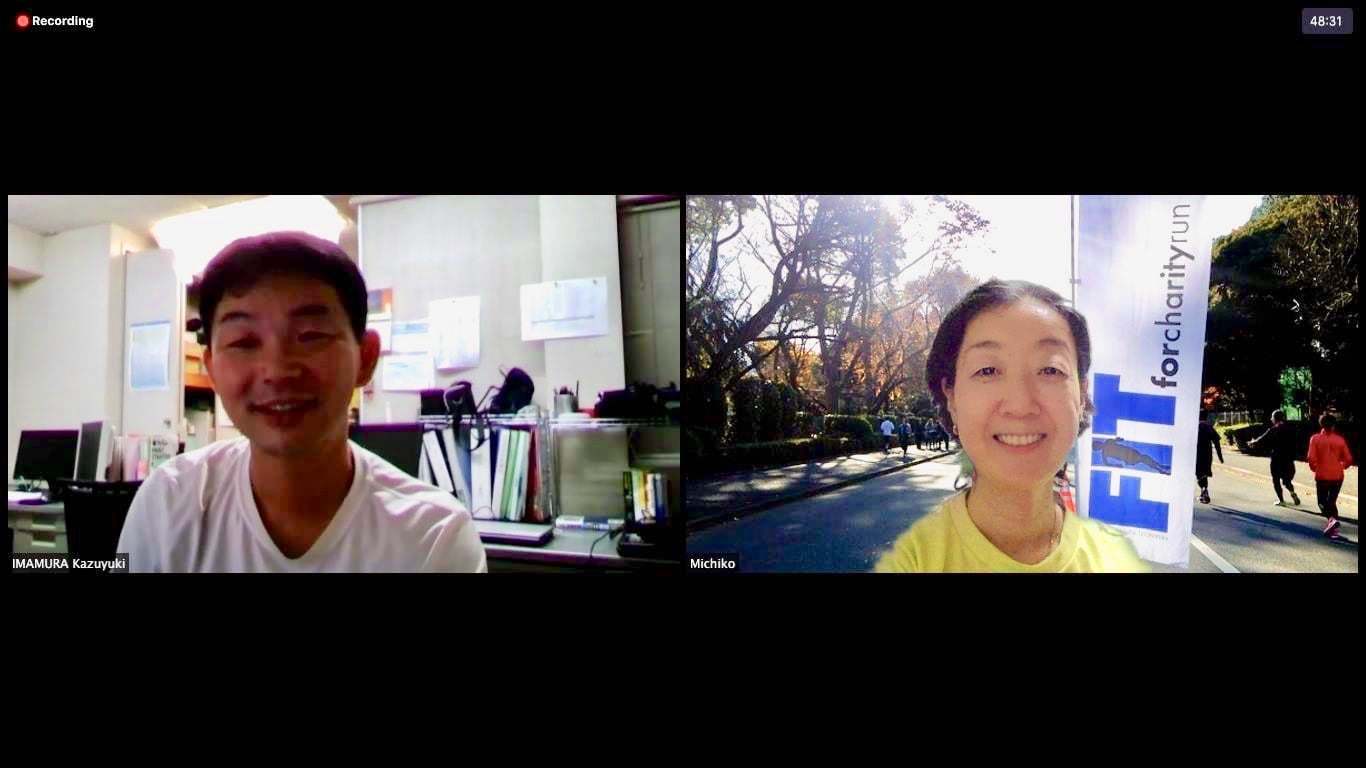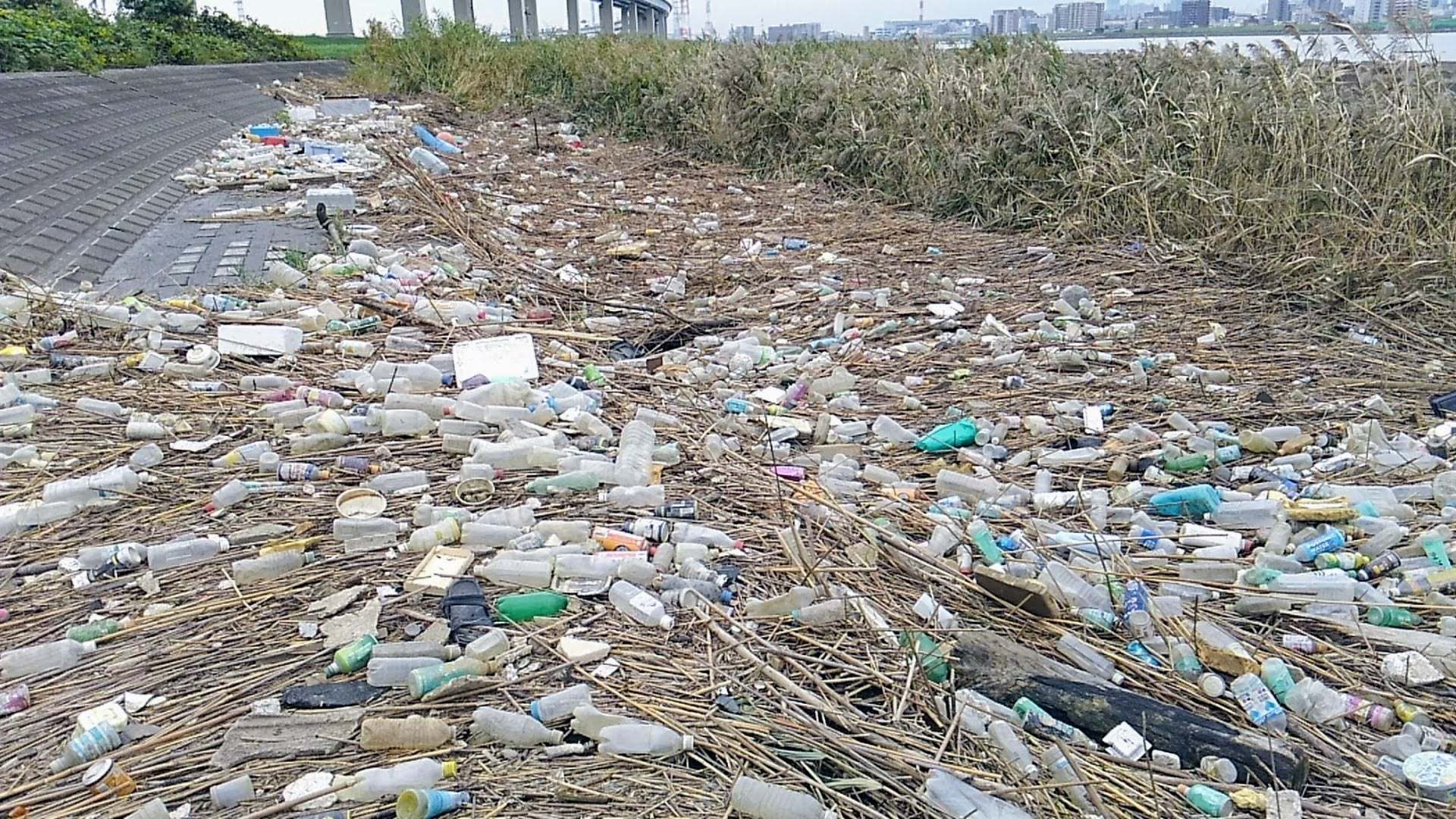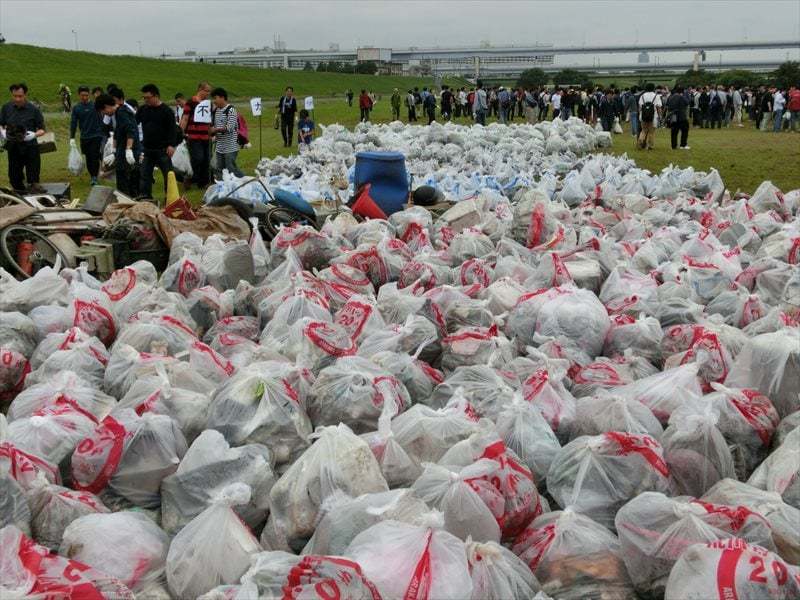Arakawa Clean Aid Forum
The Arakawa Clean Aid Forum (ACF), one of our FIT 2019 beneficiary organisations, collects garbage at various places along the riverbed, to raise awareness of river waste, water quality, and nature restoration, and works to restore nature. We spoke with Kazuyuki Imamura, Director and Secretary General.

FIT: Tell us about your background and how you came to be involved with ACF.
Imamura: In 2010, in Aichi Prefecture, I participated in a 10 day cleanup of a 50 km sandy beach with 60 -100 participants a day. We were able to see the litter-free, beautiful sandy beaches spreading behind us and felt a sense of accomplishment.
However, the next month, after 2 typhoons had passed, a larger amount of garbage had washed ashore than before, and I began to think, "The garbage problem is not solved by just picking it up." When I was looking for a solution to this drifting (ocean) waste problem, I found out about ACF. The activities of ACF are based around the Arakawa River, an urban river, but it faces the same problems as the seashore, and I have been involved with the charity since 2016.
FIT: Tell us about your challenges and rewarding experiences since you joined ACF.
Imamura: The Arakawa Clean Aid Forum was launched in 1994. The staff and executives who have been active since then are in their 50s and 70s, and sometimes we struggle with the generation gap with younger staff who are in their 20s and 30s. The challenge is that it is often difficult to get approval on new ideas from the senior, more conservative staff.
What is rewarding is being able to work with many financial institutions and leading IT companies. The number of companies cooperating is increasing, and our activities are becoming similar to a corporate company than like a non-profit organisation.
FIT: How are you utilising the FIT donation?
Imamura: The donation was to train volunteer leaders, create virtual reality videos that show the scene of the clean-up for when we can’t go out due to bad weather, and create mobile apps for children to learn. It is difficult to go to the site now due to Covid-19, but I can say that the training of volunteer leaders and the production of applications are going well. There is a delay in video production, but it is in progress.
FIT: What are your prospects?
Imamura: We are trying to increase new initiatives, such as examining ways to link IT companies with field activities. We would like to strengthen cooperation with corporations that are focusing on social contribution, and create added value and create new relationships with them.
We also recognize the importance of "hands-on experience" in cleaning. This is because there has been a change in awareness through the experience of actually seeing the amount of garbage they collect, and many participants have come to understand the importance of our activities and the significance of "refuse", "reduce", "reuse", and "recycle."
FIT: What was the society's perception of the garbage problem at the time the organization was launched?
Imamura: When the organization was established 26 years ago, the term "marine waste" was virtually nonexistent, and I recognize that the Ministry of Construction's initiative to tackle river pollution was the beginning of the initiative to tackle the problem of river waste.
Around 2015, the term "marine waste" began to be used frequently, and the value of beautification activities began to be revalued. Environmental problems can be roughly divided into 2 parts - "garbage problem" and "loss of biodiversity". I would like people to recognize that their life will be affected if they do not act within this broad framework. It is difficult to collect marine waste that has sunk deep into the sea, but we hope that people will be aware of this by seeing all the garbage by the river.
FIT: Has there been a change in the level of public interest in garbage due to the charging for plastic bags?
Imamura: Even now when "marine waste" is more widely covered in the media, it is not considered as an urgent a crisis as human life and I feel that social interest is still low.
The plastic manufacturing industry is only conducting their business in response to consumer needs, and it would be unfair if only a few companies stop making plastics. So a policy such as this is a good start as it influences the entire industry.
About 200 homeless people live in the lower reaches of the Arakawa River, and garbage that is properly disposed of is sometimes picked up and used for their living. Such garbage can be scattered during stormy weather. The problem of garbage is therefore not isolated and is related to various factors such as poverty, and diverse strategies are required.
We cannot just look at one aspect of the issue,, for example balancing the fact plastic allows for lighter, convenient packaging, but collecting these to recycle generates CO2 during transportation and requires large amounts of water and other resources to wash and recycle.
Since there are no national boundaries in the issue of marine waste, I hope that the awareness of these issues raised in Tokyo will spread globally through multinational companies such as FIT sponsors.
Arakawa Clean Aid Forum
https://cleanaid.jp/



